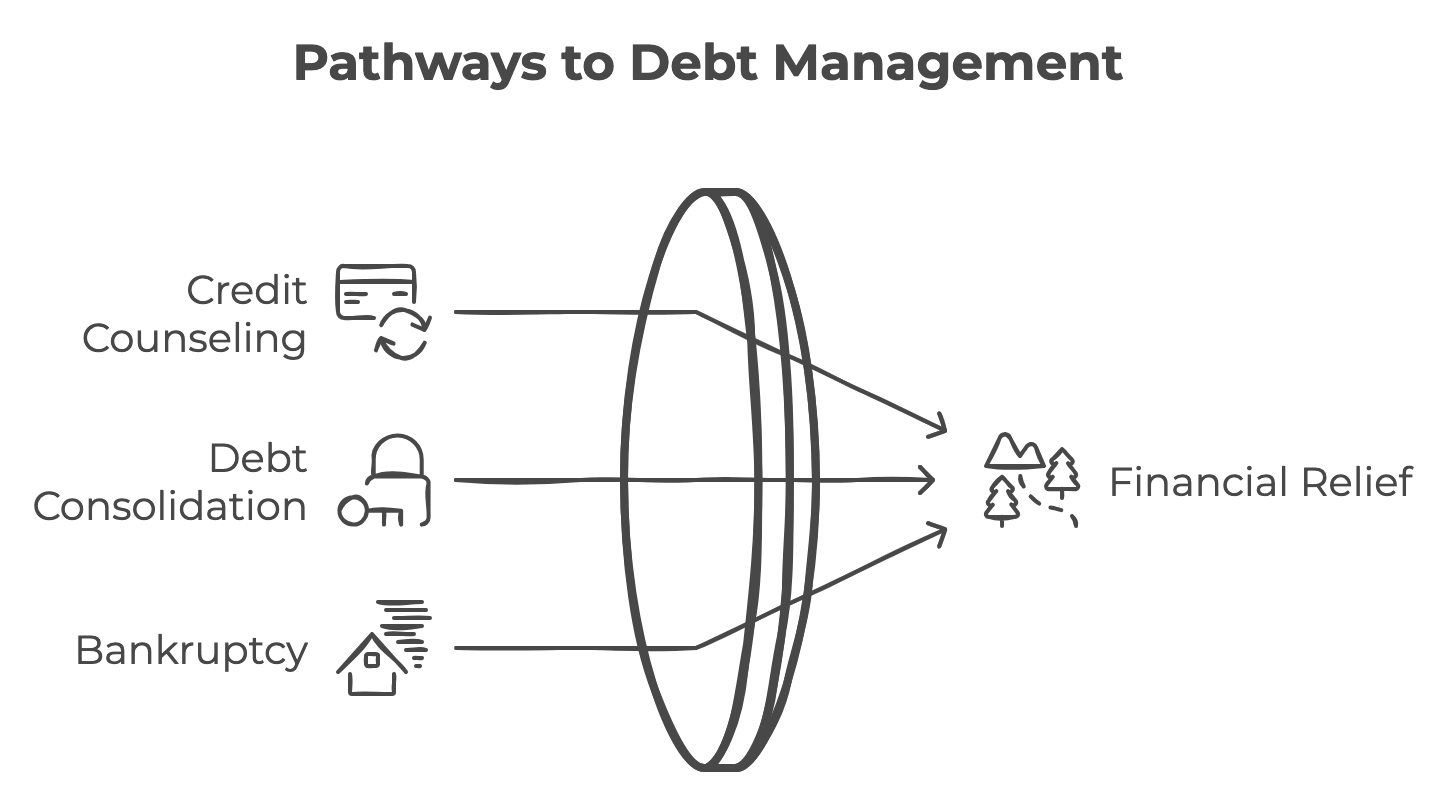Dealing with overwhelming debt can be one of the most stressful experiences, and seeking relief is a path many choose to reclaim their financial stability. Unfortunately, as with many industries, there are scammers out there waiting to exploit those in vulnerable positions. This post outlines the essential steps you can take to avoid scams when seeking debt relief and make informed decisions.
Understanding Debt Relief Scams
Debt relief scams are fraudulent schemes designed to trick individuals into paying for services that either don’t exist or won’t deliver as promised. These scams can take several forms, including:
- Promising quick fixes for debt elimination
- Charging upfront fees for debt relief services
- Offering unrealistic results, such as wiping out debt completely
Recognizing these scams is the first step toward protecting yourself.

Key Warning Signs of Debt Relief Scams
Identifying scams involves knowing the red flags. Here are the most common warning signs:
1. Upfront Fees
Legitimate debt relief services do not require payment before any work is undertaken. Watch out for companies that demand fees upfront, as this is a classic scam tactic.
2. Unrealistic Promises
Be cautious of companies promising to eliminate your debt or improve your credit score considerably and quickly. No legitimate company can make such guarantees.
3. Lack of Transparency
If a company is evasive about their services, fees, or processes, this is a major warning sign. Legitimate services will offer clear information about their debt relief strategy.
4. High-Pressure Sales Tactics
Scammers often use aggressive sales tactics to push you into making quick decisions. True professionals provide the necessary time and information for you to make the best decision.
Steps to Safeguard Yourself
Now that you’re aware of the red flags, here are steps you can take to protect yourself from scams:
Do Your Research
Take the time to research any debt relief company thoroughly. Look for reviews, ratings, and testimonials on credible websites and platforms.
- Check Accreditation: Ensure the company is accredited by reputable organizations such as the American Fair Credit Council or the International Association of Professional Debt Arbitrators.
- Verify Licensing: Check if the company is licensed to operate in your state.
Ask the Right Questions
When contacting a potential debt relief service, have a list of questions ready:
- What fees do you charge, and are there any hidden charges?
- How will your plan affect my credit score?
- Can you provide an overview of how your services have helped others?
Use Government Resources
Explore resources provided by Government entities such as the Federal Trade Commission (FTC) or your state’s Attorney General’s office. They often provide valuable information on identifying and reporting scams.
Trust Your Instincts
If something doesn’t feel right about a company or a representative’s proposal, trust your instincts and seek other opinions or guidance.
Seeking Legitimate Help
While it’s crucial to recognize and avoid scams, remember that legitimate debt relief options are available. Here are some alternatives:

Credit Counseling
Non-profit credit counseling agencies can offer personalized advice and debt management plans tailored to your situation.
Debt Consolidation
Consider consolidating multiple debts into a single payment with potentially lower interest rates, which can simplify payments and reduce overall debt.
Bankruptcy as a Last Resort
While not suitable for everyone, bankruptcy may be a viable option for those with insurmountable debt. Consult with a qualified attorney before considering this route.
Conclusion
Being informed and cautious is key to avoiding scams when seeking debt relief. By following the steps outlined here, you can protect yourself and make well-informed decisions as you work toward financial freedom.
Take the First Step Toward Financial Freedom
If debt is holding you back from the life you deserve, DebtBusters is here to help. With our team of certified professionals and proven solutions, you don’t have to face this journey alone. We’ve already helped thousands of individuals regain financial freedom, and we’re ready to do the same for you.
Don’t wait—take control of your financial future today. Call us now at 866-223-4395 or click here toschedule your free consultation. There’s no obligation, just a real opportunity to get your life back on track.
Related Content:
- How Much Does a Debt Settlement Lawyer Cost?
- How to Stop Wage Garnishment Immediately
- Can Credit Card Companies Put a Lien on Your House?
- When Is It Too Late To Stop Foreclosure?
Frequently Asked Questions
What are common signs of a debt relief scam?
Common signs of a debt relief scam include upfront fees, unrealistic promises, lack of transparency, and high-pressure sales tactics. Legitimate companies won’t guarantee to eliminate all your debt or demand payment before any services are provided.
Is it normal for debt relief companies to charge upfront fees?
No, it’s not normal for legitimate debt relief companies to charge upfront fees. Reputable organizations only collect payment after delivering services. Upfront fees are a major red flag of potential scams.
How can I verify if a debt relief company is legitimate?
To verify a debt relief company’s legitimacy, check for accreditation from reputable organizations like the American Fair Credit Council, read reviews on trusted platforms, and confirm the company’s licensing with your state’s regulatory agency.
What should I do if I suspect a debt relief scam?
If you suspect a debt relief scam, report it to the Federal Trade Commission (FTC) or your state’s Attorney General. Document all communications and avoid sharing personal financial information with the suspected scammer.
Can debt relief services guarantee to eliminate my debt?
No, legitimate debt relief services cannot guarantee to eliminate your debt entirely. Be cautious of companies that promise unrealistic outcomes, as this is a common tactic used by scammers.
How can I research a debt relief company before using their services?
Research a debt relief company by reviewing online testimonials, checking ratings from organizations like the Better Business Bureau (BBB), and ensuring they’re accredited by industry organizations. Government websites like the FTC also provide guidance on identifying scams.
What questions should I ask a debt relief company?
Ask debt relief companies about their fees, how their plan will affect your credit score, and for examples of past successes. Avoid companies that are vague or refuse to provide clear answers.
Are nonprofit credit counseling agencies a safer option?
Yes, nonprofit credit counseling agencies are often a safer option. These organizations provide free or low-cost services and personalized debt management plans, with a focus on education and long-term financial health.
What resources are available to protect against debt relief scams?
Government resources like the FTC and your state Attorney General’s office offer valuable tools to identify and report scams. They also provide lists of approved debt relief organizations to help you make informed decisions.
What should I do if I’ve been scammed by a debt relief company?
If you’ve been scammed, report the incident to the FTC, your state Attorney General, and local consumer protection agencies. Additionally, contact your financial institution to safeguard your accounts and prevent further losses.
Can bankruptcy be a legitimate debt relief option?
Yes, bankruptcy can be a legitimate option for managing insurmountable debt. However, it should be considered as a last resort after consulting with a qualified bankruptcy attorney to understand its impact on your financial future.






